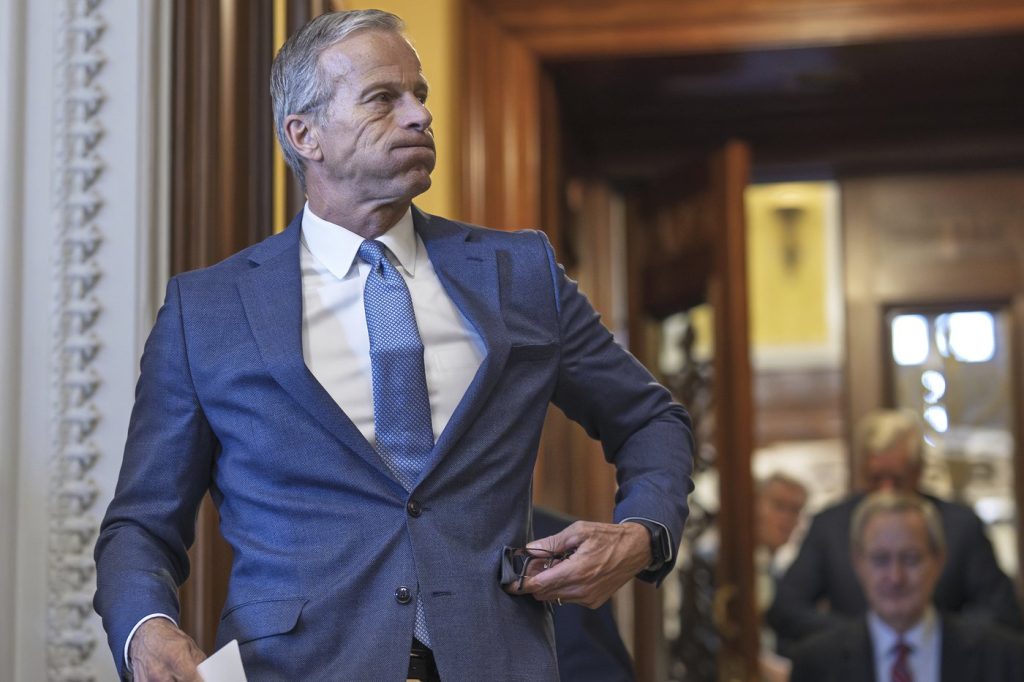On July 1, 2025, Senate Republicans successfully passed President Donald Trump's major tax breaks and spending cuts bill, achieving an outcome that came down to a narrow 50-50 vote. Vice President JD Vance cast the tie-breaking vote, despite opposition from all Democrats and three Republican senators: Thom Tillis of North Carolina, Susan Collins of Maine, and Rand Paul of Kentucky, who stood against the bill. Senate Majority Leader John Thune expressed satisfaction post-vote, remarking, "In the end we got the job done."
The path to passage was tumultuous, marked by an intense weekend of deliberations that left the president's pivotal legislative priority hanging in the balance. The bill now returns to the House, where Speaker Mike Johnson has cautioned against making any significant alterations, as the Senate's amendments included notable changes, particularly affecting Medicaid. House GOP leaders are pushing for a final vote by Wednesday to meet Trump’s self-imposed deadline before the July Fourth holiday.
This legislative moment is crucial for Trump and the Republican Party, as they focus on realizing the goals outlined in the now-887-page formally titled "One Big Beautiful Bill Act," a title later amended by Democrats. Trump recognized the complexity of the legislation while on a trip to Florida, mentioning, "I don’t want to go too crazy with cuts. I don’t like cuts."
The vote proceeded after a long day of amendments, escalating into an overnight session known for its 'vote-a-rama.' Within the Senate chamber, the atmosphere reflected both exhaustion and urgency as Thune and other Republican leaders scrambled to secure last-minute agreements. The stakes were high, with Thune needing to ensure only three Republican senators could oppose the bill without putting its future in jeopardy.
Amidst this backdrop, concerns over the Medicaid cuts grew. Critics warned that such reductions could leave millions without healthcare coverage. A nonpartisan analysis from the Congressional Budget Office projected that the bill could lead to an additional 11.8 million uninsured Americans by 2034 and an increase in the federal deficit by approximately $3.3 trillion over the next decade.
Pressure intensified as influential voices, such as billionaire Elon Musk, condemned any senator supporting the bill, stating they should "hang their head in shame" and threatening to campaign against them. Within the GOP ranks, tensions rose as Trump targeted holdout senators, highlighting a complicated landscape for Republican leadership. Senators including Collins and Lisa Murkowski expressed profound discomfort with the bill but ultimately supported its passage due to last-minute concessions that included funding for rural hospitals and protections for certain states against food stamp cuts.
Ultimately, the Senate bill encompasses an array of significant financial changes, including $4.5 trillion in tax cuts and extensive modifications to Medicaid and food stamp provisions, along with funding directed towards national security initiatives. Despite the challenges, the Republican Party is banking on delivering on its promises made during their sweeping electoral victories in Washington.
Democrats attempted to prolong the legislative process, citing concerns over the Republicans' accounting practices which they branded as "magic math." They asserted that the modification of tax breaks from Trump’s initial term should count against deficits, a sentiment echoed by Democrats aiming to illustrate the bill's flaws. In the end, the Senate's passage of this contentious bill marks a significant chapter in the ongoing political narrative surrounding Trump’s administration and the Republican agenda.












